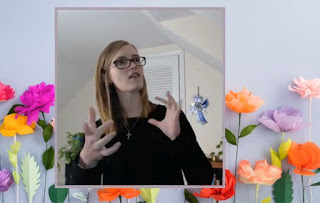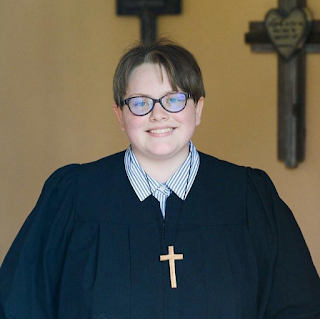A note: we intend to provide helpful information from reliable sources about what people who comprise the church can do to keep themselves safe and show their Christian love for others. We ask that you take the charge to love your neighbor seriously, without engaging in panic.
The Disability Ministries Committee has compiled a list of resources for inclusion during the outbreak; this is updated frequently. The UM Committee on Deaf and Hard-of-hearing Ministries has a list of ASL or captioned streams. Also, if you are streaming services, keep Deaf/HOH in mind. We have an updated blog entry that offers guidance: Online and Virtual Gatherings: Inclusion for Deaf and Hard-of-Hearing Members.
You may also find it helpful to follow the hashtag #HighRiskCovid19
-
AMD
DHM/UMCD
DMC
MHM
Click here for a list of events of interest to people in disability ministry.

This newsletter is generally issued weekly by the
United Methodist Association of Ministers with Disabilities,
a caucus of the United Methodist Church.
Click here to join this e-mail list.
This newsletter is also published on the UM Disability Blog
Visit us on the web or Facebook.
AMD
- Random Acts of Expression: Live Love Learn
- Alban Institute: Ministry in times of crisis
- Philip Amerson: Pandemics are not God's will
- Berkley Center, Georgetown University: Disability and the politics of vulnerability
- Beckie Writes: The
Multicultural Church
DHM/UMCD
- Los Angeles Times: Coronavirus challenges for Deaf, HOH
- UM Disability blog: Deaf communities gather for online services
- Global Accessibility News: Face mask with accessible design
- Esther Choi: prayer
- Lovers Lane UMC: Deaf ministry 20th anniversary display
- Tom Posedly: prayer
- Living with Hearing Loss: I'm not angry, just concentrating
- Tom Hudspeth: Who
is Rona?
DMC
- NPR: Ableism and medical care
- Teen Vogue: Disabled people and work from home ableism
- Christian + Autistic: Is autism demonic?
- Beckie Writes: Journey to Emmaus
- Disability and Faith: Can
we go out today?
MHM
- H. Murakami: Storms
- Mr. Rogers: Look
for the helpers
Click here for a list of events of interest to people in disability ministry.

This newsletter is generally issued weekly by the
United Methodist Association of Ministers with Disabilities,
a caucus of the United Methodist Church.
Click here to join this e-mail list.
This newsletter is also published on the UM Disability Blog
Visit us on the web or Facebook.










